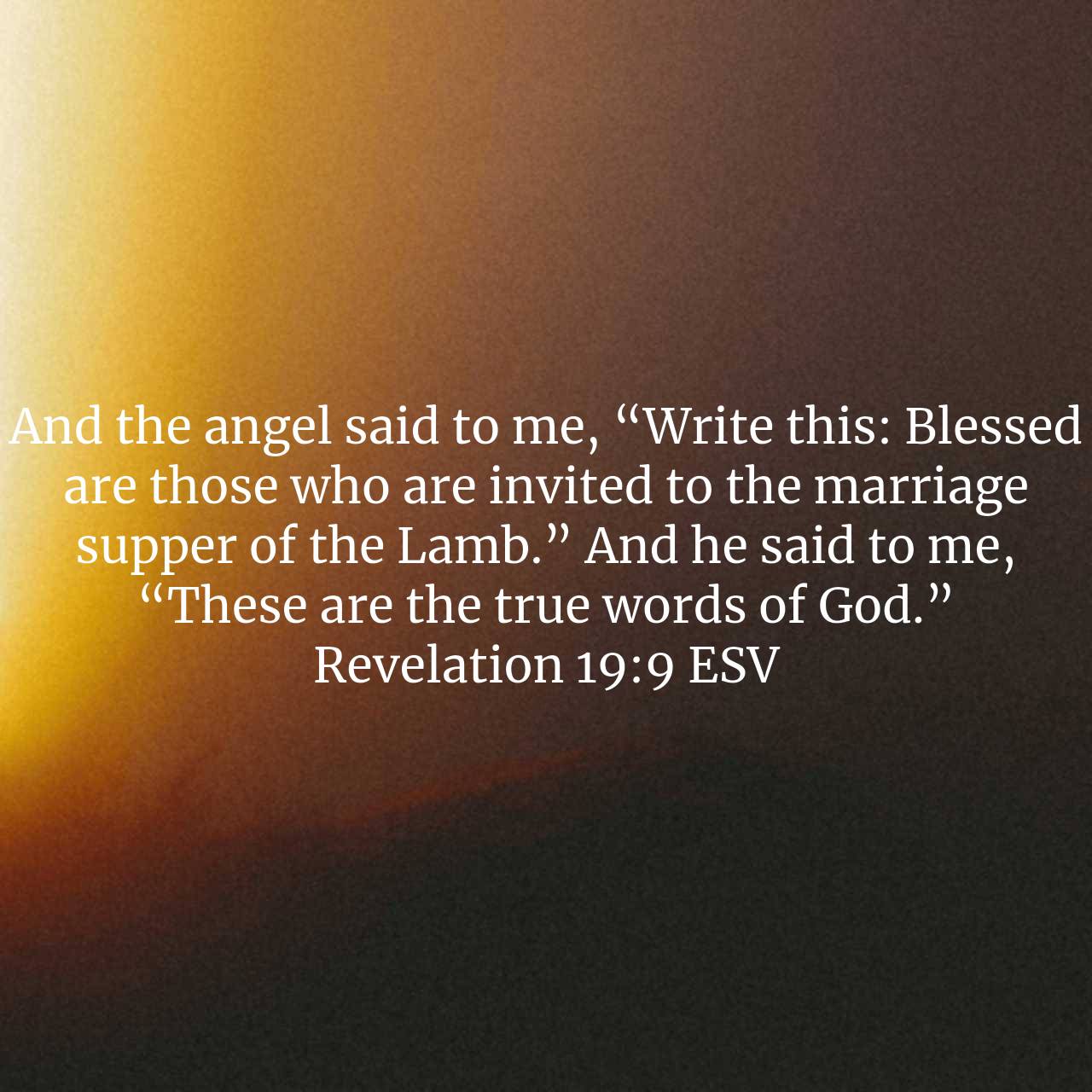Devotional 24 April 2025

The wedding supper of the Lamb is more than just a heavenly feast—it is the culmination of redemptive history and the fulfillment of every covenantal promise God made to His people. This verse is the turning point in John’s vision. After judgment falls on the harlot—unfaithful Jerusalem—the focus shifts to the radiant Bride of Christ, the Church. She is not merely a spectator at this supper, but its honored participant.
This supper is intimately tied to the New Testament’s only recurring meal: the Lord’s Supper. In 1 Corinthians 10:16, Paul reminds us that the bread and the cup are a “participation” in the body and blood of Christ. When Jesus instituted communion, He declared, “This is my body… This is my blood of the covenant” (Mark 14:22–24), echoing Moses’ words at Sinai (Ex. 24:8), but pointing to a better covenant. Jesus further said in John 6:53, “Unless you eat the flesh of the Son of Man and drink his blood, you have no life in you.”
The communion table is both remembrance and rehearsal. It recalls Christ’s sacrifice, and it anticipates the marriage supper where the Bride and Bridegroom are united in glory. In Jewish wedding customs, a betrothed couple would often seal the covenant with a cup of wine. At the Last Supper, Jesus offers that cup and says He will not drink of it again until He drinks it new in His Father’s kingdom (Matt. 26:29). Revelation 19:9 is the moment when that cup is raised again—now in consummation, not anticipation.
By contrast, Jerusalem—the unfaithful city—is given a different cup: the cup of wrath (Rev. 16:19). She drank full the fury of God’s judgment because she broke covenant, persecuted the saints, and rejected her Messiah. But those who remain faithful are blessed, for they are invited to the table of grace.
This is the invitation extended to the Church. Not merely to dine, but to commune. Not merely to remember, but to rejoice. As the Bride, the Church is both loved and lovely, clothed in the righteous deeds granted to her by Christ (Rev. 19:8), and welcomed into eternal fellowship with her King.
Let us not take this invitation lightly. Each time we share the bread and cup, we proclaim the Lord’s death until He comes (1 Cor. 11:26), and we look forward to the return of our Christ —not out of fear of judgment, but as our joyous union with Him..